The co-working office model potential market in Vietnam
The office market in Vietnam’s major cities has witnessed strong growth of the co-working office model. At present, this model is not only booming in two major cities, Hanoi and HCMC, but also spreading to Da Nang, Hai Phong, Ba Ria-Vung Tau and other large city still continue development.
The co-working office segment targets two kinds of occupiers, small-sized companies and freelancers. In these spaces, individuals sit interleavely and work independently while still sharing their work and ideas together. By choosing co-working offices, businesses and self-employed workers can save on cost, as the office rent includes all service charges such as power, water, security, cleaning, Internet and office equipment.

The co-working office model was born to replace traditional office spaces that are not flexible enough to fit the needs of small-sized businesses. Previously, small businesses in Vietnam set up their offices in apartments. But this practice is no longer allowed, and the restriction has created a huge demand for co-working space.
For small-sized businesses, co-working is a cost-saving solution compared to leasing traditional offices, because traditional office spaces are usually larger than their space demands. In addition, co-working also attracts freelancers because this model allows them to work independently in a private space or meet, discuss and share ideas with peers. The booming co-working office model in Vietnam is due to fluctuations of the economy and changes in working behaviours.
Recession always encourages the start-up trend, leading to a boom in small and medium-sized enterprises and creating a culture of entrepreneurship. According to the General Statistics Office, SMEs account for 97 percent of enterprises established in Vietnam over the past 15 years and employ about 50 percent of the workforce. In the first seven months of 2017, the number of established businesses hit 72,953, up 13.8 percent over the same period last year. In addition, creativity and flexibility are two criteria highly appreciated in society nowadays. The co-working office model is consistent with these criteria.
The co-working office model continues to attract investment in Vietnam’s major cities. This model is gradually being integrated into other types of real estate such as retail spaces and hotels. At trade centres and hotels, many developers have built spaces for co-working offices, rather than just focus on retail space or accommodation. Demand for co-working office space keeps increasing while supply is limited. Therefore, according to "Song Chau (SCBI)", in the future, this model will grow as a potential market in Vietnam.
Song Chau Group.
Related news
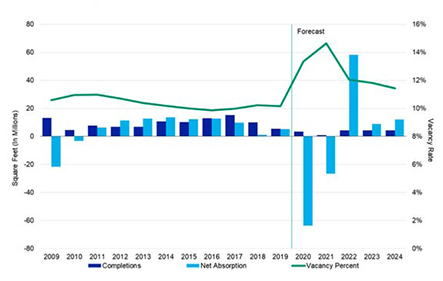
Ho Chi Minh City Real Estate Market Quarterly Reports | Q3 2021
Vaccination roll-out accelerated in Q3 2021, while lockdown measures eased by the end of Q3, kickstarting real estate market recovery to pick up the pace. The pandemic has shifted the occupier’s demand, especially large enterprise and multinational companies.
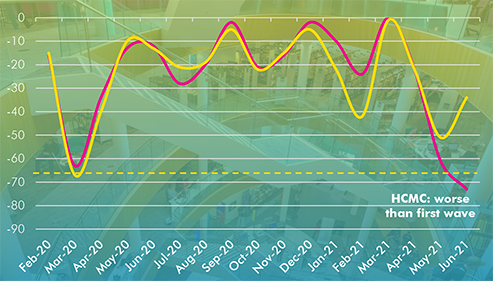
Ho Chi Minh City Real Estate Market Quarterly Reports | Q2 2021
In Q2 2021, COVID-19 continues to bite. Vietnam was a strong domestic economy that is outperforming the region, and the wealth buildup of the general population than most property asset classes are showing remarkable resilience.
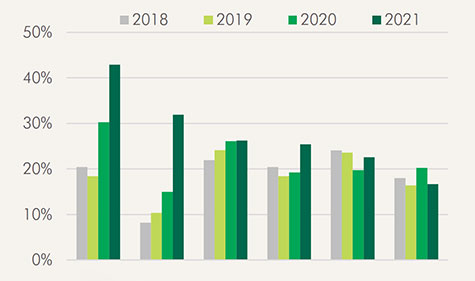
Ho Chi Minh City Real Estate Market Quarterly Reports | Q1 2021
In Q1 2021, gross domestic product (GDP) estimated to increase by 4.48% over the same period last year, higher than the growth rate of 3.68% in the first quarter of 2020. This is an opportunity for real estate developers to meet this demand in the context of lack of supply for both end-user and investor.
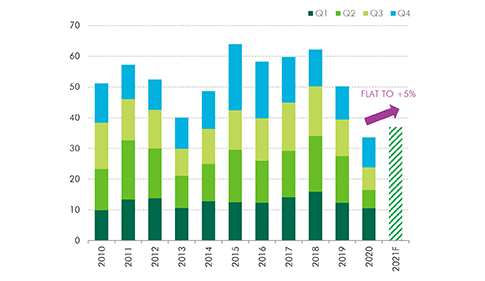
Ho Chi Minh City Real Estate Market Quarterly Reports | Q4 2020
The positive signal from key infrastructure projects such as the construction of Long Thanh International Airport and the official formation of Thu Duc City will be a key driver of the real estate market to restart. This is good times for retailers to search for quality retail space at a discount.
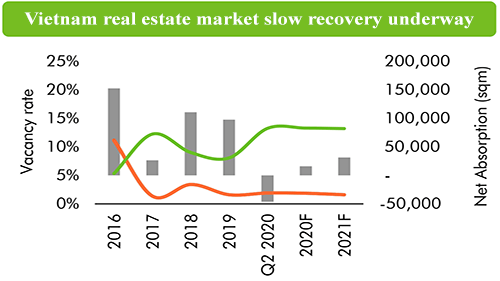
Ho Chi Minh City Real Estate Market Quarterly Reports | Q3 2020
The absorption rate Ho Chi Minh City real estate market is expected to have mild recovery in Q4 2020 while asking rents and selling prices are expected to maintain the current level, backed by short-term rental support policy from developers to improve their competitive advantage.
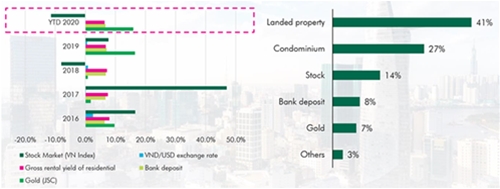
Ho Chi Minh City Real Estate Market Quarterly Reports | Q2 2020
Vietnam remains one of the fastest-growing SE Asian economies with a bright long-term economic outlook. Positive GDP 2.6% growth in 2020, an average 6.7% pa forecast 2021 with full recovery by 2024, according to FocusEconomics. The prolongation of Coronavirus has challenged the recovery of economies in Vietnam.
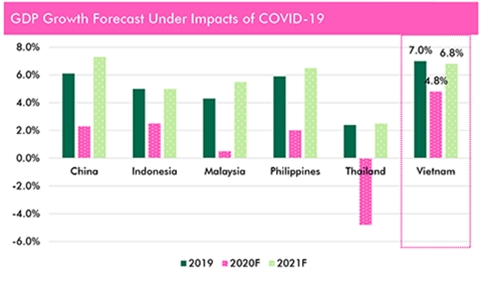
Ho Chi Minh City Real Estate Market Quarterly Reports | Q1 2020
Covid-19 outbreak has created many disruptions in Vietnam’s economy and its real estate market. Vietnam’s manufacturing sectors is heavily dependent on raw materials. Disruption to supply has forced many local producers to temporarily cease production since January, leading to a very low growth in exports in Q1 2020.
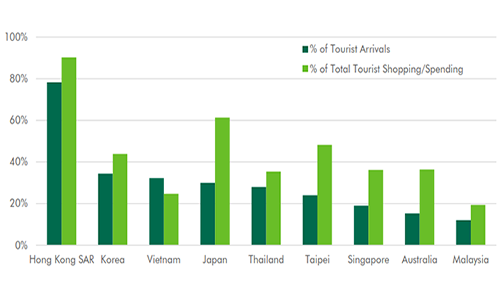
Ho Chi Minh City Real Estate Market Quarterly Reports | Q4 2019
Vietnam’s economy achieved 7.02%, well exceeding set by the National Congress. High growth was driven by strong export activities 'Total export values was US$263.5 billion' leading to trade surplus US$9.9 billion. New launches in real estate market continued to decrease due to slowdown of licensing process.
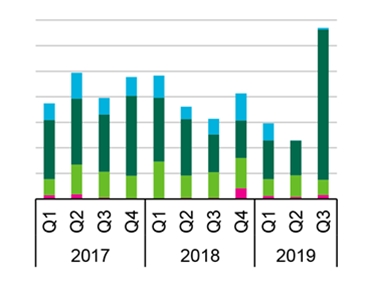
Ho Chi Minh City Real Estate Market Quarterly Reports | Q3 2019
The shortage of new supply was recorded again in the third quarter of 2019 in the ready-built villa and townhouse segment despite high expectation for the launch of large-scale projects. However, due to many unexpected reasons, these projects have been delayed until the end of 2019.
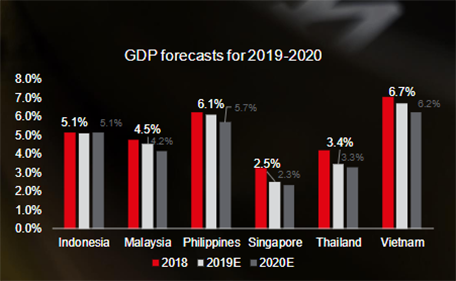
Vietnam’s Economic Backdrop Quarterly Reports | Q2 2019
Amid the prevailing global high uncertainty and growth slowing down, Vietnam’s economy still achieved stable growth with 6.8% in 1H 2019. As of Q2 2019, the GDP growth reached 6.71%, slightly lower than the Q2 2018 rate yet still higher than the growth of the second quarter during the 2011-2017 period.

